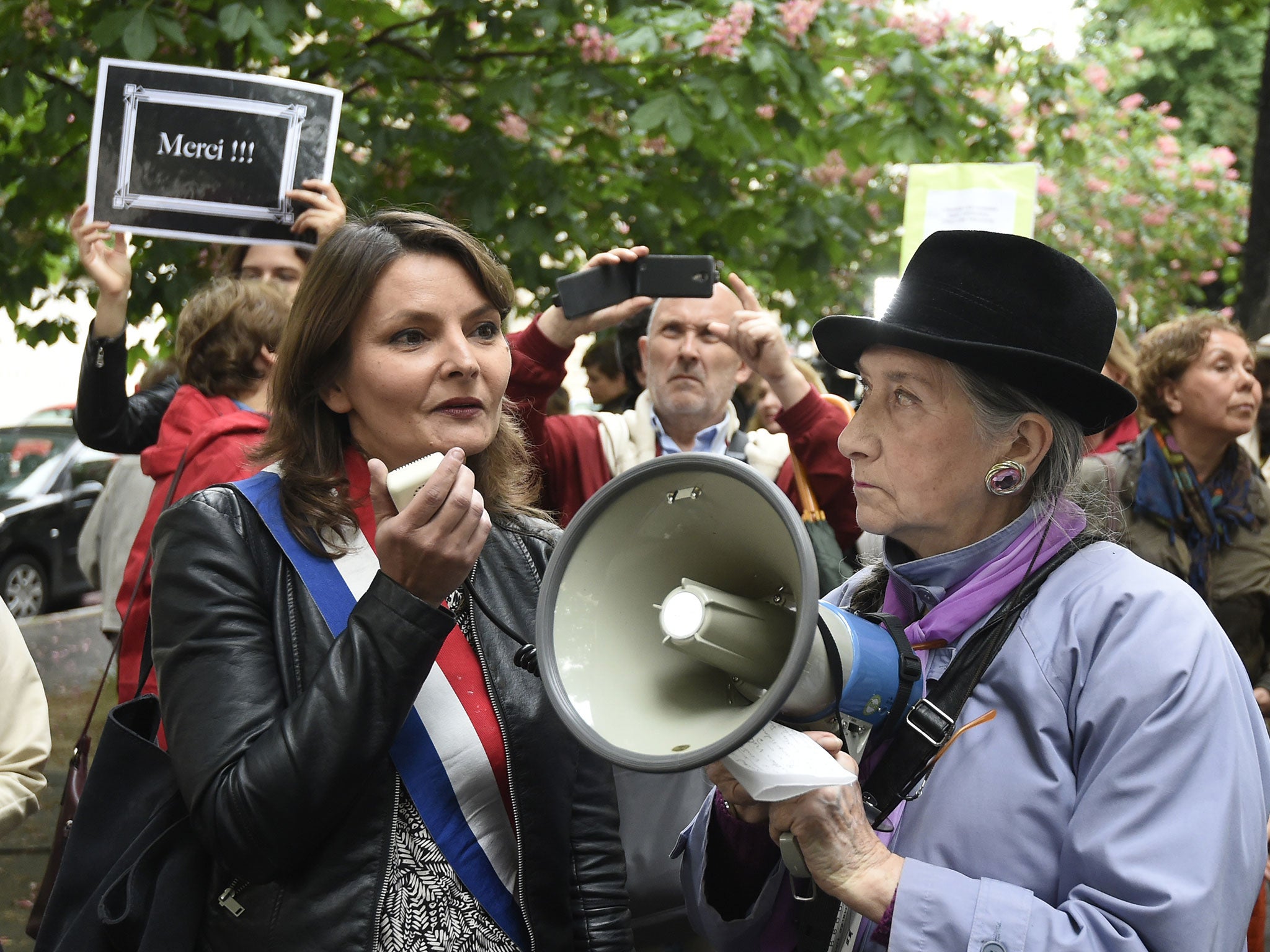Sex, lies and French politics: female politicians in France say 'never again' to sexual harassment
France has long been immune to sex scandal, but now accusations against senior figures are coming to light

There was a time when France sniggered at the sex scandals that periodically enlivened British or American politics. “Jamais ici”, they would say. "We are relaxed about sex, unlike the prudish and hypocritical Anglo-Saxons.”
But the male-dominated world of French politics, for so long immune to scandal, is abruptly having to deal with serial accusations of its own forms of hypocrisy and prudishness. Last week Denis Baupin, the vice-president (deputy speaker) of the national assembly, resigned to fight allegations that he had groped or sexually harassed eight female colleagues in the past 15 years. He denies the accusations en bloc.
Last Tuesday the finance minister, Michel Sapin, one of the most senior members of the government, was forced, after serial denials, to admit that he had behaved in an “inappropriate” way towards a female journalist at the Davos international forum last year. The woman bent over to recover a fallen pen. It is alleged that Mr Sapin reached out and twanged the elastic of her knickers.
Now 16 female former cabinet ministers from all parts of the political spectrum have published a joint statement swearing “never to remain silent again” about aggressive sexual behaviour by male colleagues.
“When I first heard what Sapin was supposed to have done, I thought ‘Is that all?’” a well-known French woman radio journalist told The Independent. “Much worse things happens or used to happen. We took it for granted. But the younger generations of women journalists – and it is becoming a very female profession in France – will no longer put up with it.”
Exactly a year ago, a group of French female political reporters blew the whistle on the repeated sexist comments and behaviour of the country’s male politicians. In an article in the centre-left newspaper Libération, they said that they hoped that the Dominique Strauss-Kahn affair three years earlier had “started a new era”. “We hoped that the macho habits, which symbolise old fashioned politics and attitudes, were on the way to extinction. Alas no,” they wrote.
The article listed dozens of examples of sexual harassment, and sometimes outright sexual blackmail, practised by older, male politicians and government officials. An unnamed politician and “friend of President François Hollande” was quoted as saying that he only “liked journalists with big breasts”. A member of parliament door-stepped by female TV reporters was reported to have said: “You are street-walking, Are you looking for a client?”
Female journalists are bombarded, the article said, with text messages offering information in return for a “meeting over a drink” or “dinner on Saturday night”.
Women working in political parties, or even junior, elected women politicians, are said to be regarded as easy prey by their senior male colleagues.
“There is a law of silence, which many women prefer not to break,” said a female parliamentary assistant. “If you make a fuss, you are no longer helping the party. You are someone who is disrupting the party’s work.”
Magali Della Sudda, a political scientist in Bordeaux, said: “In a world where reputation is everything, a woman working for politicians has little hope of finding another job if she makes a complaint.”
Mr Baupin, a senior Green politician, was alleged last week to have harrassed, and on one occasion groped, a series of female colleagues over 15 years. Some of the alleged victims were scarcely junior. They include an MP, an assistant mayor and a party spokeswoman. Mr Baupin denies the allegations and has announced that he will sue for defamation.
Why did the women not speak out earlier? They say that they did not want to cause problems for the French green movement, which is now called Europe Écologie-Les Verts (EELV). They also suggest that their positions became even more awkward last year when Mr Baupin married the party leader, Emmanuelle Cosse, who had since resigned to join the government as minister of housing.

They say that they decided finally to speak out, to the news website Mediapart, after Mr Baupin signed a declaration in March condemning sexual harassment.
Mr Baupin’s defenders suggest that the timing of the complaints is politically motivated. The French green movement has been split down the middle in recent months between “moderates”, who wish to support or join the reformist centre-left government, and those who wish to fight against it. Mr Baupin and his wife Ms Cosse are leading moderates.
Other Green party officials say that – like DSK before him – Mr Baupin’s behaviour towards women was an open secret. Both Mr Baupin and Ms Cosse say this is rubbish.
Other questions are being asked about the timing of this week’s allegations and about the French media’s new-found interest in sexual harassment by politicians. As one female member of parliament pointed out, many French women have to put up with constant harassment, at work and on the street. They are often in a weaker position to protest or resist than female polticians and journalists.
The senior woman radio journalist points out that, until recently, some women journalists in France used sex appeal to gain information. In the 1970s, Françoise Giroud of L’Express, the first woman to edit a French weekly news magazine, boasted that women journalists were much better at extracting information from male politicians.
Romantic partnershps between politicians and journalists are common in France. Recent examples include President Hollande’s ill-fated partnership with the Paris Match journalist Valérie Trierweiler.
The senior woman radio journalst told The Independent: “The truth is that things are changing as the generations change. A few years ago, none of this stuiff would have been published. It would have been gossiped about but not published.”
“The change is healthy, but women have to be careful not to go too far down the road to a new prudishness, where no form of mildly risqué joking or flirting is permitted.”
Join our commenting forum
Join thought-provoking conversations, follow other Independent readers and see their replies
Comments